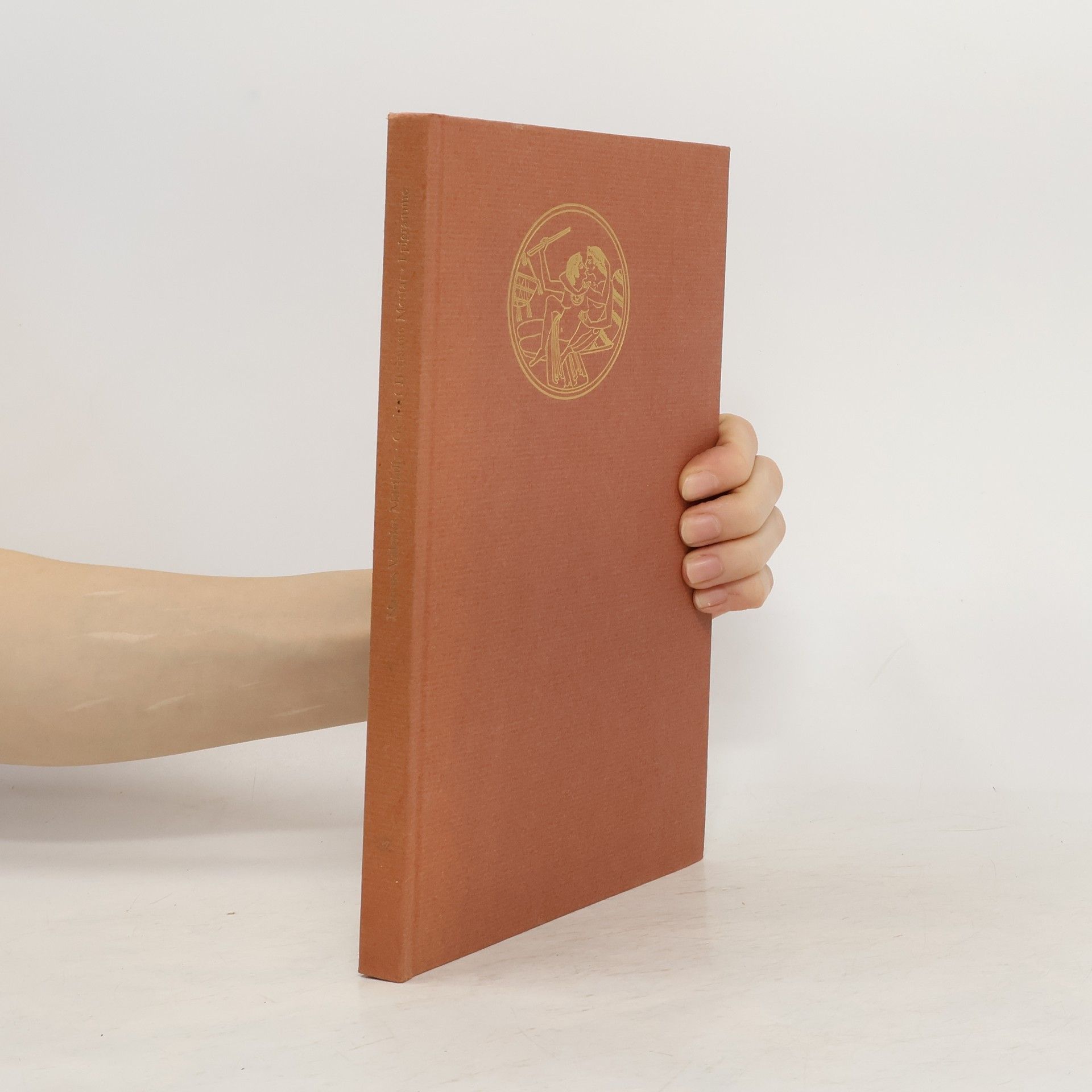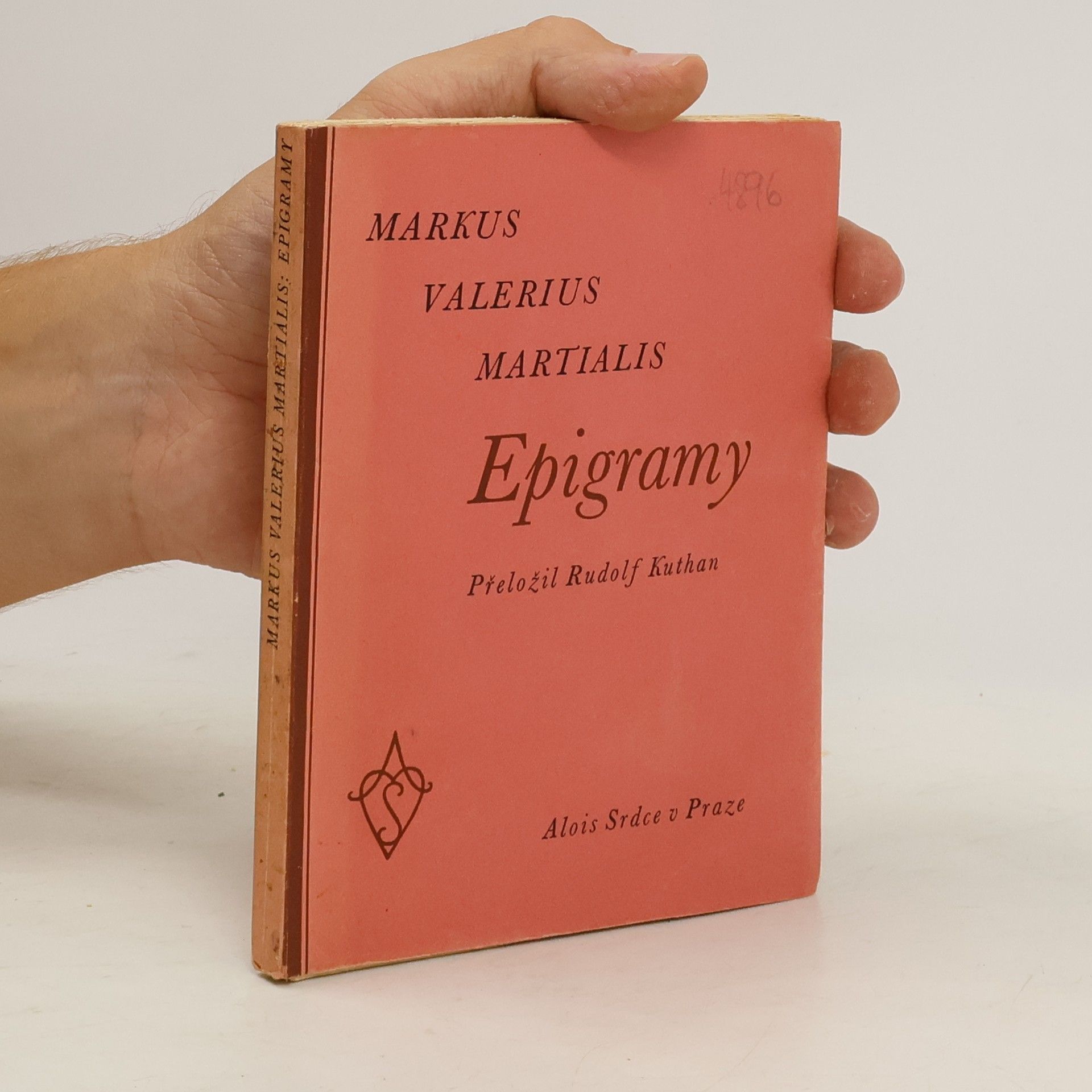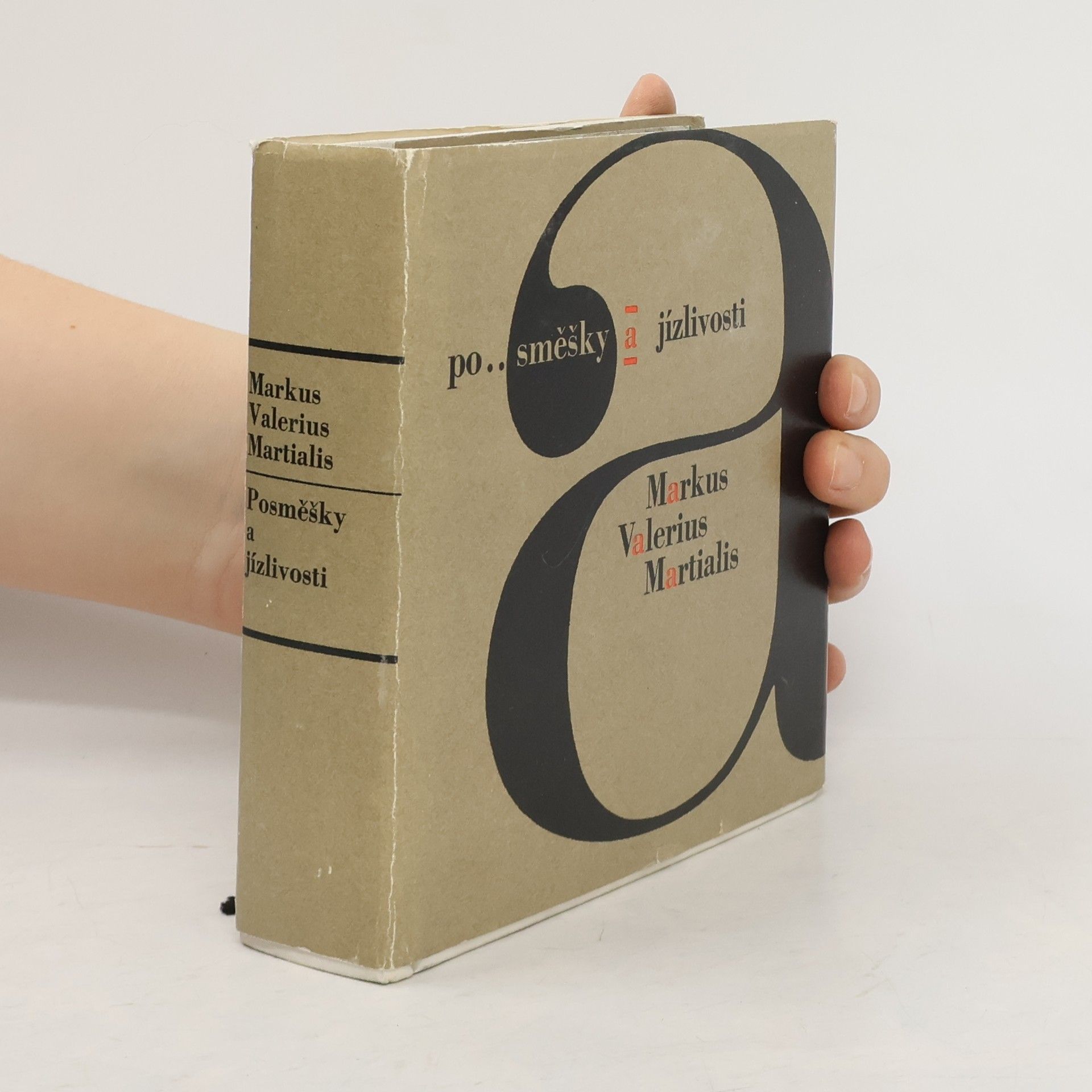I cento epigrammi proibiti
- 97pagine
- 4 ore di lettura
Marcus Valerius Martialis fu un poeta latino, celebre per i suoi dodici libri di epigrammi. Nelle sue brevi e argute poesie, satirizza con allegria la vita cittadina e le scandalose attività dei suoi conoscenti, pur romanticizzando le sue origini provinciali. È considerato il creatore dell'epigramma moderno, con le sue opere che offrono una rappresentazione magistrale della vita romana. Le sue poesie, scritte in distici elegiaci, sono piene di acuta osservazione e umorismo.







Výběr z Martialových Epigramů (z latinských originálů Marci Valerii Martialis Epigrammation libri) sestavený a přebásněný Radovanem Krátkým představuje satirický pohled na společenský život v Římě na přelomu našeho letopočtu. Jako vzorek : / Že jsem starým dědíkem? / Co to sekáš jazykem, / díky jemuž předvést se dá, / v čem muž není nikdy děda? //
M. Valerius Martialis (ca. 38/41 - 102/103 n. Chr.) gilt als erster Epigrammatiker der Weltliteratur. Als einziger römischer Dichter, der ausschließlich Epigrammme schrieb, hat er diesem Genre seine geistreichste Form verliehen. Der Kommentar zu ausgewählten Epigrammen Martials erschließt einen vertieften Zugang zu diesem Autor. Er behandelt sprachliche, stilistische und kompositorische Fragen und bietet auch die notwendigen Sachinformationen. schovat popis
Martilialis čerpal témata svých epigramů z každodenního života a často si vybíral jeho nejhorší podobu. Jeho epigramy jsou často obscénní, některé jsou velmi urážlivé.
ausgewählte Epigramme des M.V.Martialis